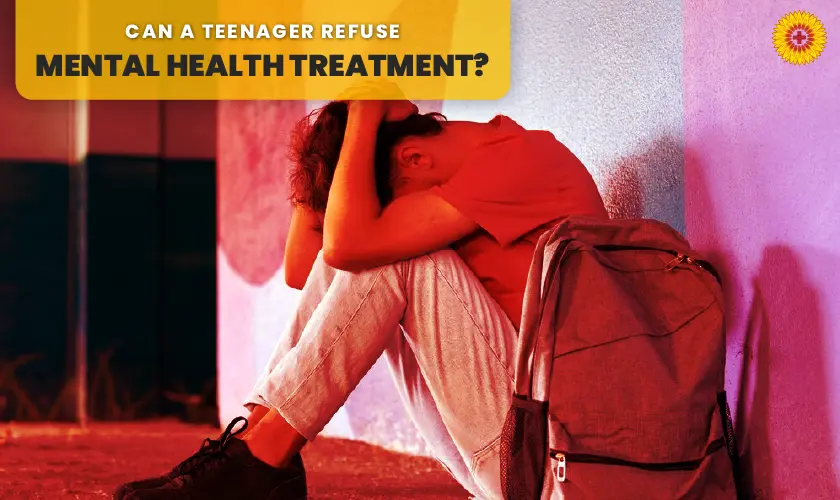It can be hard to deal with your teen’s mental health problems as a parent or guardian.
One common concern is whether a teenager can refuse mental health treatment.
We offer teenage therapy at Urgent Care of Kansas. It would benefit you to deal with your teenager’s emotional behaviors.
Let’s explore the reasons why a teenager refuses to do anything about their mental health. And find out the effects and potential solutions for this challenging situation.
Reasons Why Teenagers Refuse to Do Anything for Mental Health
According to this study, it is critical to understand why teens refuse to seek mental health treatment and to discuss these issues constructively and helpfully.
Here are some common reasons why teens refuse mental health treatment is included:
Stigma:
Due to mental health stigmas, teens who fear being labeled “weak” or “crazy” may not seek treatment.
Lack of awareness:
Sometimes, teens do not know the symptoms or signs of mental health problems or do not even realize they are having one.
Fear of judgment:
Teenagers might be afraid of what their friends, family, or mental health professionals will think if they go to get help for a mental health problem.
The desire for independence:
It is normal for teens not to want help because they do not want to give up their freedom.
Negative past experiences:
Unfortunately, some teens may not want to get mental health treatment again because they had a bad experience with it in the past, like feeling misunderstood or not taken seriously.
Denial:
Teens may not realize they have mental health issues and refuse treatment.
How to Get Someone Mental Help When They Refuse
When a teenager refuses to do anything for mental health treatment, it is essential to handle the situation with patience, empathy, and understanding.
Helping a teenager who refuses mental health assistance demands sensitivity. Here are steps to support them:
- Open Communication: Initiate honest conversations with your teen about mental health. Please encourage them to express their concerns and fears without judgment.
- Educational Resources: Provide reliable information about mental health conditions, therapy, and treatment options. It can dispel myths and reduce resistance.
- Seek Professional Guidance: Consult mental health professionals specializing in adolescent care. They can offer advice and mediate conversations between you and your teen.
- Respect Autonomy: Acknowledge your teen’s autonomy while gently emphasizing the importance of treatment. Engage them in decision-making about their care and guide them to know it’s important to be mentally healthy or sound.
- Therapeutic Interventions: Family or group therapy sessions can facilitate discussions in a safe environment, fostering understanding and support.
- Patience and Support: Building trust takes time. Offer continuous support, showing empathy and patience throughout the process.
To Conclude
Understanding why teenagers refuse to do anything for mental health care is crucial. Stigma, fear, and lack of awareness often contribute to their hesitation.
Additionally, nurturing open conversations and seeking professional guidance is important to supporting teenagers through this complex challenge, improving their mental health, and starting a self-care journey.
Need help finding guidance behavioral services? Do visit Urgent Care of Kansas to achieve renewed mental health.
FAQs
1: How can I find inpatient mental health facilities for youth near me?
To find inpatient mental health facilities for youth, you can start by consulting with mental health professionals, pediatricians, or local health departments.
2: Can a 12-year-old go to a mental hospital?
If it is thought to be best for their health, a 12-year-old can sometimes get mental health care at a hospital.
However, the specifics depend on the child’s condition, state laws, and the hospital’s rules.
3: At what age can a child refuse mental health treatment?
The age at which a child can refuse mental health treatment varies by state and situation.
Generally, teenagers may have some say in treatment decisions, but parental consent is usually required until they reach the age of majority, typically 18.
4: What can I expect during a mental health retreat for young adults?
Retreats usually include therapeutic activities, group counseling, mindfulness exercises, and training workshops for young adults.



No comment